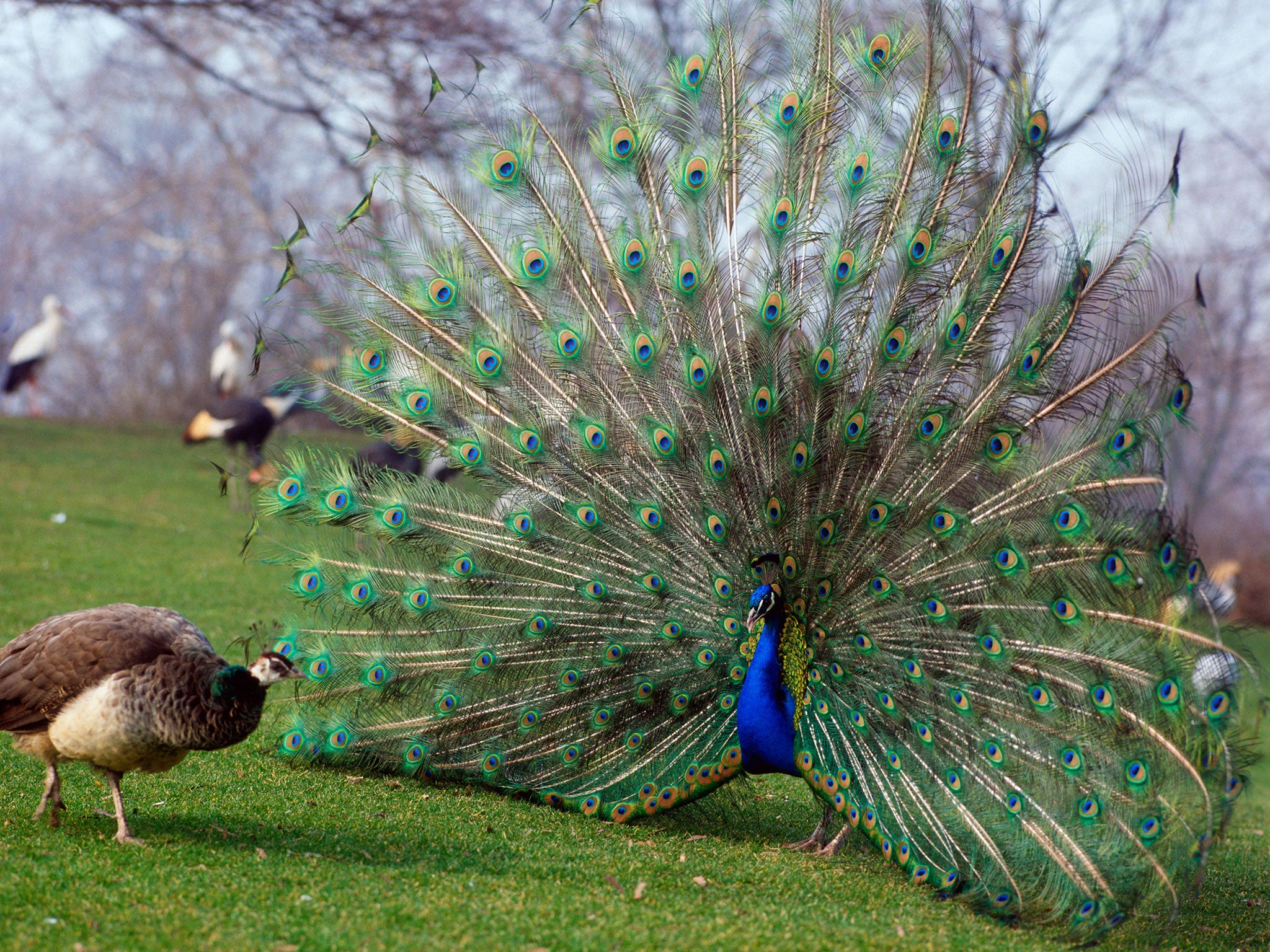Female animals typically less colourful 'because they are trying to avoid sexual harassment'
Males compete for sexual attention of females, which need to be picky about their mates because they generally look after any resulting offspring

Scientists have come up with a new explanation for why female animals are usually less colourful and decorated than their male counterparts – they could be seeking to avoid sexual harassment.
The reason for the relative drabness of many female animal species has long been a source of puzzlement, with various theories posited over the years.
Males compete for the sexual attention of females, which need to be picky about their mates because in the animal kingdom they generally look after any resulting offspring.
This means potential mothers seek mates with the best possible genes, signified by their “exaggerated ornamental traits”. Animal males frequently signal their vitality with great aplomb, through showy plumage, markings or other magnificent displays.
But males can also be discerning about their mates, so the relatively uninspiring appearance of many females in the animal kingdom is puzzling, say researchers from the University of Exeter.
“If we accept the premise that males, while not as choosy as females, still exert some choice of mate, then the question is ‘why don’t females signal their sexual quality via ornamental sexual traits like males?” said Professor David Hosken, of the university.
He suggests their relative lack of showiness in their ornamentation is all about producing the maximum number of eggs. The more energy that is used to fight off unwanted attention, the less is left to lay eggs and the greater the risk of other obstacles to giving birth, such as injury.
“We suggest that female ornaments could lead to increased sexual harassment by males and this could be especially costly to the number of offspring you leave behind. The energetic cost of harassment – by either avoiding males or dealing with unnecessary sexual attention – would reduce your egg production,” the professor said.
Looking drab is not the only tool in the female animals’ anti-harassment armoury. They are known to go to great lengths to avoid unwanted male attention, even – in some cases – disguising themselves as males.
Other techniques include moving to areas where there are fewer males, forming large groups of females, fighting off unwanted advances and using “anti-aphrodisiacs”. The female Australian spiny leaf stick insect wards off unwanted male suitors with a pungent chemical that removes any ideas they may have about imminent reproduction.
The research into this latest theory of the avoidance of unwanted male attention has been published in the journal Animal Behaviour and also involves work by a scientist from the University of California, Santa Cruz.
“We are not suggesting that male harassment of attractive females is the only explanation for lack of sexual ornamentation ... but want to alert researchers to the idea that this could be a contributing factor,” said Professor Hosken.
According to another theory, females are less colourful because of their greater need for camouflage. Penhens – the dowdy female counterpart of the peacock – need to avoid predatory foxes more than males do, if they are going to maintain the population.
Another popular theory suggests that high levels of ornamentation would reduce a female’s fertility – the more energy spent on enormous, brightly coloured tail feathers, for example, the less to spend on eggs.
Join our commenting forum
Join thought-provoking conversations, follow other Independent readers and see their replies
Comments
Bookmark popover
Removed from bookmarks